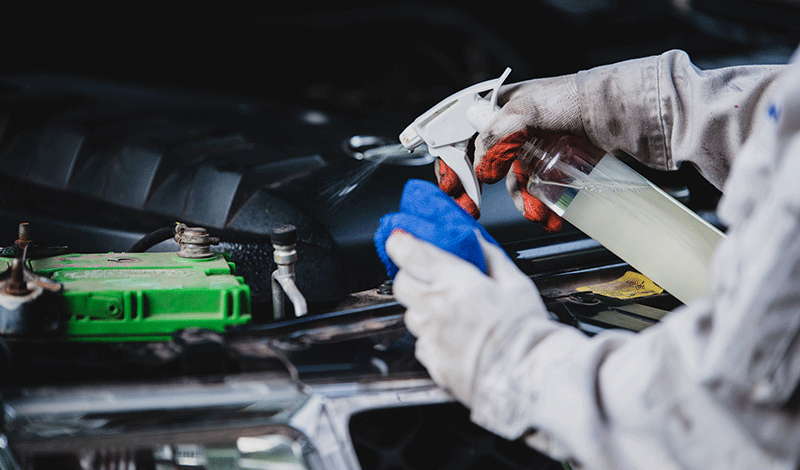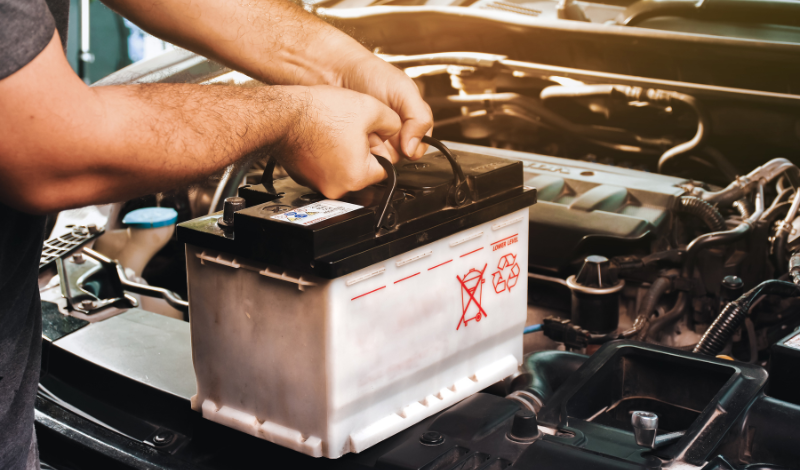Car batteries play a crucial part in starting your vehicle and powering its electrical components. Like the heart in the human body, the battery provides the necessary jolt to bring your car to life. It converts chemical energy into electrical power, energizing the starter motor and ignition system. It is essential to understand its operation to maintain your car properly.
Recognizing the basic functions of a car battery is fundamental for effective upkeep. It stores electricity and delivers it as needed, ensuring your car runs smoothly. This energy storage requires careful management to prevent potential issues. Proper maintenance extends battery life, avoiding inconvenient breakdowns.
Consistent attention to your car battery’s health can prevent future troubles. Through regular checks, you can detect and mitigate issues before they escalate. A well-maintained battery ensures reliable vehicle performance. Remember, prevention is always better than facing unexpected problems on the road.
Understanding the Basics of Car Battery Function
The car battery primarily provides the energy required for the ignition process. It is the initial power source when turning the key or pushing the start button. This burst of energy initiates engine combustion, which then powers the vehicle.
In addition to ignition, the battery supplies electricity to other car components when the engine isn’t running. This energy is crucial for the functionality of lights, radios, and other electronic devices. Ensuring that your battery is functioning optimally is, therefore, critical for both driving and vehicle operation.
Over time, batteries naturally degrade due to chemical reactions within. Recognizing this gradual decline is vital as it affects performance. By understanding how a battery functions, you can address maintenance needs promptly, fostering longevity and stable vehicle operation.
Regular Inspection and Maintenance: Key to Longevity

Inspecting your battery regularly involves checking its voltage and looking for signs of corrosion. Voltage levels should remain within a specific range for optimal performance. If levels are low, charging or replacement might be necessary. Checking terminals for corrosion is also crucial, as it can hinder power flow.
Maintenance includes keeping terminals clean and ensuring connections are secure. Corroded terminals can be cleaned with a solution of baking soda and water. This act not only extends battery life but also enhances vehicle safety by preventing electrical failures.
Periodic tightening of battery connections wards off unexpected power losses. Loose cables lead to intermittent power supply, which may cause further damage. By staying attentive to these regular maintenance practices, you ensure consistent battery reliability.
Optimal Charging Practices for Extended Battery Life
Charging your car battery should be done with care. Overcharging can reduce battery life while undercharging leads to sulfation, which can impair battery capacity. Utilize a smart charger that automatically adjusts the charge rate to prevent damage.
To maintain charge levels, drive your car regularly. Long periods of inactivity lead to battery discharge, so keeping the engine running periodically helps preserve battery health. This practice is especially important for maintaining your car’s battery in an optimal state.
In case your car remains unused for an extended period, consider using a maintenance charger. This device keeps the battery at the right charge level without overcharging, crucial for vehicles in storage. Maintaining this charge balance is a key factor in prolonging the life of your car battery.
The Role of Driving Habits in Battery Health
Your driving habits can significantly impact your battery’s health. Frequent short trips prevent the battery from fully charging, shortening its life. Longer drives allow the battery to achieve a full charge cycle, which is beneficial for its overall health.
The use of electrical accessories when the engine is off also drains the battery. Limiting this can prevent unnecessary battery depletion. Be mindful of the electrical demands you place on your battery and use accessories judiciously.
Adopting conscious driving and vehicle use practices can contribute to your battery’s longevity. Smart choices like avoiding the unnecessary use of electronics and preferring longer trips over short jaunts make a stark difference. These habits can keep your battery strong and reliable for years.
Seasonal Considerations for Battery Care
Temperature extremes take a toll on battery performance. Extreme cold can slow down the chemical reaction inside the battery, reducing its efficiency. It’s important in winter to keep your battery fully charged to compensate for this effect.
In contrast, heat accelerates battery corrosion and fluid evaporation. During hot months, inspect your battery more frequently and ensure it remains hydrated if it’s a serviceable unit. Proper summer care involves shielding the battery from excessive heat when possible.
Adapting your maintenance routine to the season greatly enhances your battery’s lifespan. Take extra steps like insulating your battery in winter and parking in the shade in summer. These simple, season-smart actions preserve battery condition and function.
Professional Battery Testing and Servicing

Annual professional battery evaluation is an excellent preventative measure. Mechanics utilize specialized tools to measure battery health, spotting problems you might overlook. This checkup provides insight into when your battery might need replacement, allowing you to plan accordingly.
Technicians may offer services such as load testing and checking the charging system’s performance. They can identify if the alternator properly charges the battery or if there are underlying issues. Professional servicing takes out the guesswork, ensuring your battery receives thorough care.
If you’re uncertain about interpreting battery inspection signs, seeking professional help is the way to go. Experts can provide tailored advice and precise care for your specific battery type. This expert intervention can be key to preserving your battery’s life and your vehicle’s reliable performance.
Recognizing and Addressing Common Battery Issues
You might encounter warning signs such as dim headlights, a slow engine crank, or a swollen battery case. Dim lights indicate the battery is struggling to supply ample power. A sluggish crank suggests the battery is not providing enough energy to start the engine efficiently.
Swelling of the battery case is an urgent warning, often related to overcharging or exposure to high temperatures. If you observe any of these symptoms, immediate action is required. Delaying can lead to battery failure and can potentially damage your vehicle’s electrical system.
Regular monitoring can help you spot these issues early on. If you’re comfortable, perform some basic troubleshooting. However, consult a professional if the problem persists or you’re unsure of the solution. Swiftly addressing these common concerns is imperative to maintain your battery’s health.
Replacement Strategies: When and How to Choose a New Battery

A car battery generally lasts three to five years, but this lifespan can vary based on usage and care. Once it nears the end of its life, it’s prudent to consider replacement options. Understanding your vehicle’s requirements and the conditions you frequently drive in will guide your choice.
When shopping for a new battery, consider factors such as size, power requirements, and manufacturer recommendations. Additionally, assess warranty offers for potential future benefits. Be sure to choose a compatible, high-quality battery that guarantees reliability and performance.
Installing a new battery is a straightforward process that can be done at home if you have the right tools and knowledge. However, for assurance, opting for professional installation is advisable. Experts ensure that your new battery fits correctly, is installed safely, and functions as expected.
Conclusion: Integrating Effective Battery Maintenance into Routine Vehicle Care
Incorporating simple battery maintenance practices into your regular vehicle care is very beneficial. These practices enhance your car’s reliability and can save you money in the long run. By being proactive, you are less likely to face inconvenient breakdowns or costly repairs.
Educate yourself about your battery’s specific care requirements and adhere to a regular maintenance schedule. These can include visual inspections, cleaning, and charging checks. Such attentiveness guarantees you a dependable car battery, ready to power your journeys. Remember, your car’s battery is fundamental to its operation. Through diligent care and timely professional servicing, you can extend your battery’s life and ensure seamless vehicle performance. Keep these guidelines in mind to keep your car running smoothly for years to come.

